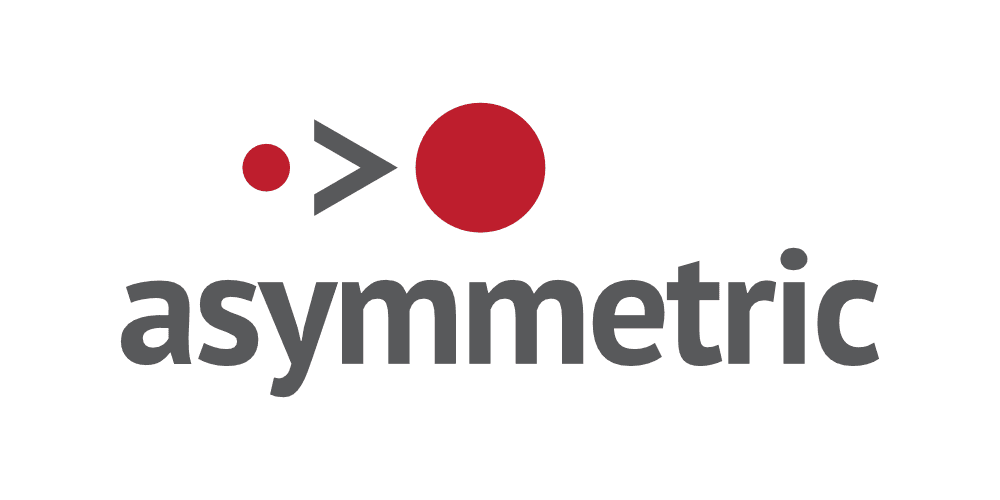Data science is a powerful tool that can help small businesses grow and prosper. Effective data collection is crucial for gaining insights into customers, products, and operations. Small businesses can use data and business analytics to gain insights into their customers, products, and operations. This information can help them make better decisions about how to run their businesses.
Data science can also help small businesses compete with larger firms. By using data-driven strategies and data analysis, small businesses can more effectively target their marketing efforts, create products that appeal to their customers, and optimize their operations.
Businesses that use data science will be better positioned to succeed in today’s competitive marketplace. Data science will give them the tools they need to thrive in the digital age.
What is Data Science?
Definition and Applications
Data science is a multidisciplinary field that combines computer science, statistics, and domain-specific knowledge to extract insights and knowledge from data. It involves using various techniques, such as machine learning, data visualization, and predictive analytics, to analyze and interpret complex data sets. Data science has applications across various industries, including business, healthcare, finance, and more. By leveraging these techniques, businesses can uncover hidden patterns, predict future trends, and make data-driven decisions that drive growth and efficiency.
Benefits for Small Businesses
Data science can be a game-changer for small businesses, enabling them to make data-driven decisions, improve operational efficiency, and gain a competitive edge. By leveraging data science, small businesses can better understand their customers, optimize their marketing efforts, and improve their overall performance. For instance, data science can help small businesses segment their customer base, identify the most profitable products, and streamline their supply chain operations. This not only enhances customer satisfaction but also boosts profitability and growth.
Real-World Examples
For instance, a small e-commerce business can use data science to analyze customer purchase behavior and preferences. Then, the business can use that information to personalize its marketing campaigns and improve customer engagement. By understanding which products are most popular and which marketing channels are most effective, the business can allocate resources more efficiently and increase sales.
Similarly, a small restaurant can use data science to analyze customer reviews and feedback and use that information to improve its menu offerings and customer service. The restaurant can improve the dining experience and build customer loyalty by identifying common complaints and preferences.
Is Data Science for Small Business Relevant?
There’s a lot of talk these days about data science for small business and its impact on businesses of all sizes. But what does that mean for small businesses? Is data science even relevant to them?
The short answer is yes, data science is definitely relevant to small businesses. In fact, it can be an incredibly powerful tool for them. By using data science, small businesses can make better decisions about everything from product development to marketing to customer service. Data science can also help small businesses optimize their processes, making them more efficient and effective.
Data literacy training can help small business teams effectively implement data strategies and make informed decisions.
It is also true that most small businesses cannot afford to hire a trained data scientist to do this type of work. Data scientists are expensive and hard to find.

Benefits of Business Analytics
Making Better Business Decisions
Business analytics is a critical component of data science, enabling businesses to make informed decisions based on data-driven insights. By analyzing data, companies can identify trends, patterns, and correlations that inform their strategic decisions.
For example, a business can use data analytics to analyze customer data and identify opportunities to cross-sell and upsell products, leading to increased revenue and customer loyalty. Additionally, business analytics can help identify inefficiencies in operations, allowing businesses to streamline processes and reduce costs.
Small businesses can make smarter decisions that drive growth and improve their bottom line by leveraging business analytics.
Using Data Science
There are many ways to use data science for small business. Here are a few examples:
- Use customer data to understand your customers. One of the most important things a business can do with data is to understand who its customers are and what they want. Data can help you segment your customers, understand their needs, and determine how to reach them more effectively.
- Use data to improve your marketing. Data can help you track which marketing campaigns are working or not. You can use predictive analytics to determine which prospects will most likely convert into customers. You can also use lead scoring to prioritize your sales efforts.
- Use data to improve your operations. Data can help you streamline your operations and make them more efficient. For example, you can use algorithms to automate tasks that would be done manually. You can also use data to predict when equipment is likely to break down so you can prevent problems before they happen.
- Use data to make better decisions. Data can help you answer important questions about your business. What are your most profitable products? Which customers are the most loyal? What are the biggest drivers of customer satisfaction? By understanding the answers to these questions, you can better decide where to focus your time and resources. Descriptive analytics can help you analyze historical data to understand past performance and identify trends.
Acquiring data science skills such as programming, machine learning, and data manipulation is crucial for optimizing business performance and ensuring data security in a data-centric environment.
In short, data science and data analysis apply to small businesses and can improve their operations in various ways. Now is the time to start if you’re not already using data to inform your decision-making.
Predictive Analytics for Future Outcomes
As a business owner, you know predictive analytics can be a powerful tool to help you make better decisions about your customers and your business. But what is predictive analytics, and how can it help your business?
Integrating data science into business strategies can enhance productivity and decision-making.
By using predictive analytics, you can gain valuable insights into your customer base and make more informed decisions about your marketing and sales strategies.
Predictive analytics involves using algorithms to analyze data and predict future events. It can identify trends and patterns and predict future customer behavior. Predictive analytics can improve lead scoring, target marketing campaigns, and increase sales.
Using predictive analytics is growing in popularity as businesses realize the value of this technology. It is another excellent example of the application of data science to small businesses.

Business Intelligence
If you’re a business owner, you know that data-based decisions are essential to your success. But what if you don’t have the time or resources to invest in full-fledged business intelligence (BI) or competitive intelligence (CI) solutions?
Fortunately, several BI tools are available specifically for small businesses. These tools can help you use your big data without breaking the bank. Advanced data analytics can provide deeper insights and more accurate predictions, helping businesses make better decisions. Strong technical skills enable professionals to interpret complex datasets and derive actionable insights, crucial for informed decision-making in a data-driven environment.
Algorithms can take your data into actionable insights to help you make better business decisions. For example, an algorithm might help you identify which customers will most likely buy your products or services.
Another helpful tool is lead scoring. Lead scoring can help you prioritize which prospects will likely convert into customers. This can save you a lot of time and effort, as you can focus your sales and marketing efforts on the leads most likely to result in business.
Several other data analysis and BI tools are available for small businesses. The key is to find the ones that will work best for you and your data. With the right tools, you can better use your data and take your business to the next level.
Forecasting
Forecasting is a critical component of business intelligence for small businesses. The ability to predict future trends and patterns can help businesses make informed decisions about where to allocate resources and how to best position themselves for growth.
Depending on the data and information available, several different forecasting techniques can be used. Statistical modeling is often used to predict future trends based on historical data.
Common forecasting methods include trend analysis, regression analysis, artificial intelligence or machine learning algorithms, and Bayesian networks. Each method has its strengths and weaknesses, so choosing the right approach for the specific big data set and business context is important.
Forecasting can be a powerful tool for small businesses, helping them to make better decisions and stay ahead of the competition. With the right tools and techniques, small businesses can use forecasting to gain a competitive edge in their industry.

Sentiment Modeling
Sentiment models are another important big data analytics tool for small businesses seeking insights from their data. By analyzing customer sentiment, businesses can better understand customer needs and preferences and decide accordingly.
Several sentiment analysis techniques exist, including opinion mining, natural language processing, and text analytics. Each method has its strengths and weaknesses, so choosing the right approach for the specific data set and business context is important.
Sentiment analysis can be a powerful tool for small businesses looking for excellent data science applications. It can help them better understand customer needs and preferences. With the right tools and techniques, a small business can use sentiment analysis to gain a competitive edge in their industry.
Churn Prediction
Churn prediction is yet another valuable forecasting tool that can inform business decisions. By understanding which customers are at risk of leaving, businesses can take steps to prevent them from doing so.
Several churn prediction techniques exist, including survival analysis, machine learning, and neural networks. Each method has strengths and weaknesses, so choosing the right approach for the specific data set and business context is important.
Churn prediction can be a powerful tool for small businesses, helping them to keep their customers happy and loyal. With the right tools and techniques, small businesses can use churn prediction to gain a competitive edge in their industry.

Data Mining and Pattern Recognition
Data mining and analysis can also benefit businesses. By understanding the patterns hidden in their data, businesses can make better decisions about where to allocate resources and how to improve their operations. Analyzing raw data can help businesses identify hidden patterns and make better decisions.
Several data mining techniques exist, including association rule learning, decision trees, and clustering. Each method has strengths and weaknesses, so choosing the right approach for the specific data set and business context is important.
Data mining can be a powerful tool for a small business, helping you make better decisions and improve your operations. With the right tools and techniques, small businesses can use data mining to gain a competitive edge in their industry.
Big Data
Big data and analytics are becoming increasingly important to data-driven businesses in today's digital age. By understanding the patterns hidden in their data, businesses can make better decisions about where to allocate resources and how to improve their operations. Historical data is essential for understanding past trends and making accurate predictions in big data analytics.
Big data tools and services include Hadoop, MapReduce, Spark, and NoSQL. Each tool has its strengths and weaknesses, so choosing the right approach for the specific data set and business context is important.
Big data can be a powerful tool for a small business, helping you make better decisions and improve your operations. With the right tools and techniques, small businesses can use big data to gain a competitive edge in their industry.
Big Data Processes
Some examples of big data processes that can be helpful to a small business are:
- pattern recognition: finding regularities or similarities in data
- time-series analysis: analyzing data that changes over time
- market analysis: understanding trends in a particular market
- customer segmentation: dividing customers into groups based on their similarities
- social media analysis: understanding how people interact with each other online
Business Intelligence Tools
Small businesses can also benefit from business intelligence tools like data mining, visualization, and dashboards. These tools can help businesses to understand their data better and make more informed decisions. However, small businesses must choose the right tool for their needs. There are various types of business analytics, including descriptive, diagnostic, predictive, and prescriptive analytics.
Many business intelligence and data science tools are available to small businesses today. These tools can help businesses to make better decisions, improve customer relations, and increase profits.
We can divide business intelligence tools into two major categories: reporting and analytics. Reporting tools provide users with pre-defined reports that can be run on-demand or on a schedule. Analytics tools allow users to explore data and find patterns and insights.
The most popular business intelligence tool is Microsoft Excel. Excel is versatile and can be used for both reporting and analytics. Other popular business intelligence tools include Tableau, Qlikview, and SPSS.
One interesting and unique tool that combines data science, artificial intelligence, and business intelligence functions is DataChat.
One advantage of these sophisticated data analysis and business intelligence platforms is that they allow people who are not trained data scientists to achieve very high-level analytical insights.

Choosing Tools
When choosing a business intelligence tool, it is important to consider the business's specific needs. Some businesses only need reporting capabilities, while others need social media or advanced analytics features. It is also important to consider the users' skills and the level of support available from the vendor.
Business intelligence tools can be expensive, so it is important to compare prices and features before purchasing. Many vendors offer free trials of their products so businesses can try out different technology tools before committing to a purchase.
Training employees who will use it is important once a business has decided on the right tool for its needs. Training can help employees understand how to use the tool and get the most out of its features.
Data Wrangling and Preparation
Data wrangling and data preparation are two of the most important steps in implementing a business intelligence or data analytics program. Without properly preparing the structured data, you won't be able to get accurate insights into your business.
There are a few things to keep in mind when preparing data for analysis:
- Make sure all data is in the same format. This will make it easier to analyze and compare data sets.
- Remove any irrelevant data. This can help reduce noise and improve the accuracy of your analysis.
- Format data for easy analysis. This might include aggregating data into tables or graphs or transforming data into a specific format (e.g., time series).
Preparing your data will help you get the most out of your business intelligence or data analytics program.

Frequently Asked Questions (FAQ) About Data Science for Small Business
What is data science, and why is it important for small businesses?
Data science involves using algorithms, statistical models, and analytical methods to extract insights from data. Data science is important for small businesses because it helps them make informed decisions, optimize operations, target marketing efforts, and improve customer experiences. By leveraging data science, small businesses can gain a competitive edge against larger companies.
Can small businesses afford to implement data science?
Many data science tools and platforms are affordable and designed for small businesses. Tools like Google Analytics, Tableau, and HubSpot offer cost-effective solutions that provide valuable insights without requiring a significant investment. Additionally, some platforms offer free trials or basic versions that can be used to get started.
What are some practical ways small businesses can use data science?
Small businesses can use data science in several ways, including:
- Customer Segmentation: Analyzing customer data to create targeted marketing campaigns.
- Predictive Analytics: Forecasting sales and managing inventory based on historical data and trends.
- Sentiment Analysis: Monitoring social media and customer reviews to improve products and services.
- Churn Prediction: Identifying customers at risk of leaving and implementing retention strategies.
- Pricing Optimization: Setting optimal prices based on market trends and customer behavior.
- Operational Efficiency: Streamlining operations by analyzing production data and identifying bottlenecks.
- Marketing Attribution: Determining which marketing efforts drive sales to optimize marketing spend.
Do small businesses need a trained data scientist to use data science tools effectively?
While having a trained data scientist can be beneficial, it is not always necessary. Many data science tools are designed to be user-friendly and do not require extensive technical expertise. Small businesses can start by using accessible tools and gradually build their data analytics capabilities. Online courses and tutorials can also help business owners and employees develop the necessary skills.
What are the two major categories of analytics tools for small businesses?
The two major categories of analytics tools for small businesses are:
- Reporting Tools: These provide pre-defined reports that can be run on-demand or on a schedule. Examples include Microsoft Excel and Google Analytics.
- Analytics Tools allow users to explore data and find patterns and insights. Examples include Tableau, HubSpot, and Microsoft Power BI.
How can predictive analytics benefit small businesses?
Predictive analytics uses algorithms to analyze data and predict future outcomes. This can mean better sales forecasting, understanding customer behavior, and optimizing marketing campaigns for small businesses. Small businesses can make proactive decisions that enhance growth and efficiency by predicting future trends and customer actions.
What role does business intelligence play in small businesses?
Business intelligence (BI) tools help small businesses make data-driven decisions by providing insights into operations, customer behavior, and market trends. BI tools can range from simple reporting and dashboards to advanced data analytics and visualization. These tools enable small businesses to understand their data better, identify opportunities, and make informed decisions.
How can small businesses get started with data science and analytics?
Small businesses can start by identifying key areas where data can provide valuable insights, such as customer behavior, sales trends, or operational efficiency. They can then use accessible tools like Google Analytics and Microsoft Power BI to gather and analyze data. Investing in employee training or seeking advice from data consultants to build foundational knowledge and skills is also beneficial.
Are there specific data science tools tailored for small businesses?
Several data science tools are tailored for small businesses, offering affordability and ease of use. Some popular options include:
- Google Analytics: This is used to understand website traffic and customer behavior.
- Tableau: For powerful data visualization and insights.
- HubSpot: For integrated marketing, sales, and customer service data.
- Hootsuite: For managing social media presence and engagement.
- Microsoft Power BI: For robust data analysis and visualization.
- RapidMiner: For advanced analytics without extensive coding skills.
What should small businesses consider when choosing a data science tool?
When choosing a data science tool, small businesses should consider:
- Business Needs: Determine whether the tool is for reporting, analytics, or both.
- Ease of Use: Ensure the tool is user-friendly and aligns with the team’s technical expertise.
- Cost: Compare prices and consider any free trials or basic versions available.
- Support and Training: Check if the vendor offers adequate support and training resources.
- Scalability: Choose a tool that can grow with the business and handle increasing data volume.
What is the significance of a data science career for small businesses?
A data science career is significant for small businesses because data professionals make informed business decisions. They help businesses leverage data to optimize operations, enhance customer experiences, and drive growth. There are diverse pathways to enter the field, including educational programs, online courses, and boot camps, which equip individuals with the necessary skills to succeed in this dynamic and evolving profession.

Use Data Science for Small Business
If you need personalized advice or want to discuss how these principles can be tailored to your business, we’re here to help!
- Contact us: Contact Form
- Schedule a complimentary consultation: Book Now
Don't miss this opportunity to gain valuable insights and advance your pricing strategy.
Mark Hope
Partner, Asymmetric Marketing
📧 mark.hope@asymmetric.pro
📞 (608) 410-4450
About the author
Mark A. Hope is the co-founder and Partner at Asymmetric Marketing, an innovative agency dedicated to creating high-performance sales and marketing systems, campaigns, processes, and strategies tailored for small businesses. With extensive experience spanning various industries, Asymmetric Marketing excels in delivering customized solutions that drive growth and success. If you’re looking to implement the strategies discussed in this article or need expert guidance on enhancing your marketing efforts, Mark is here to help. Contact him at 608-410-4450 or via email at mark.hope@asymmetric.pro.

